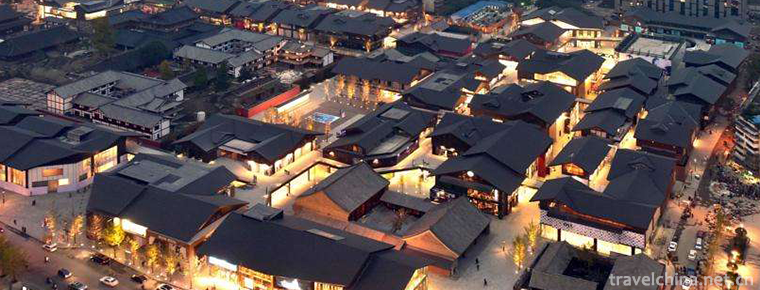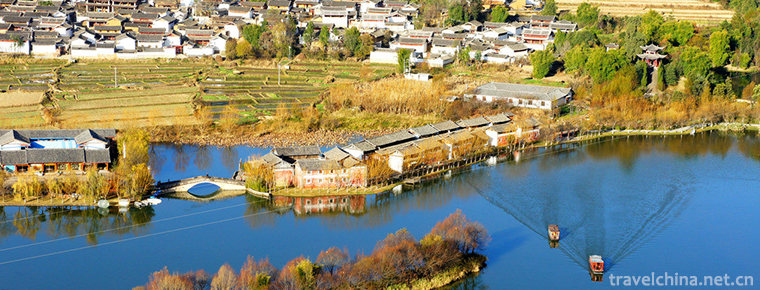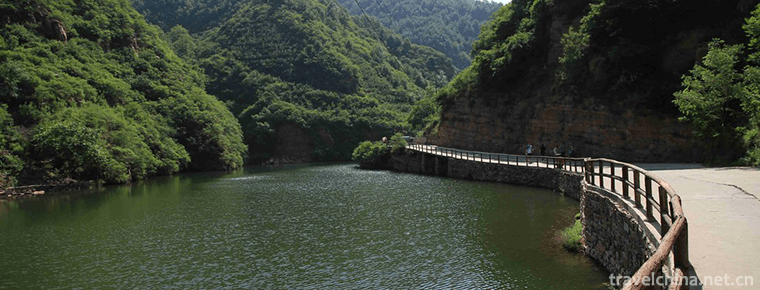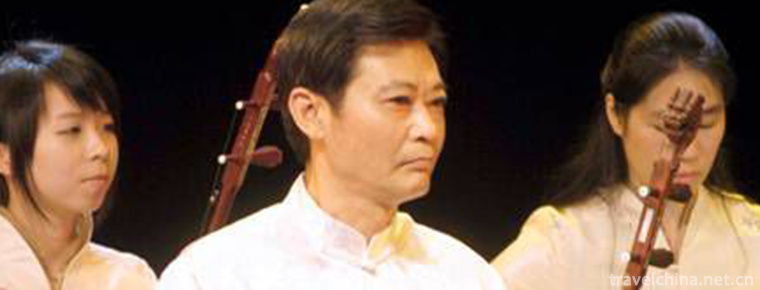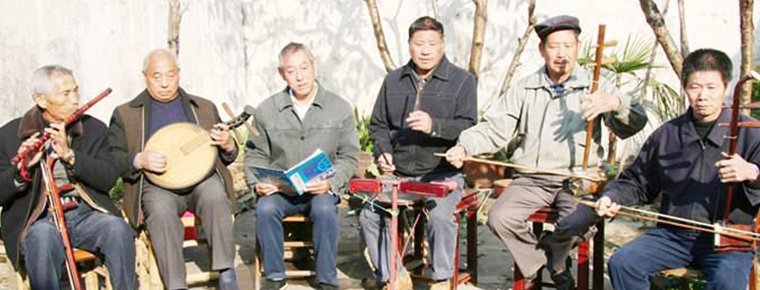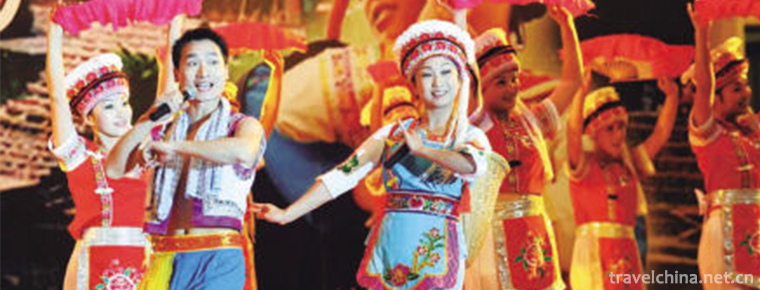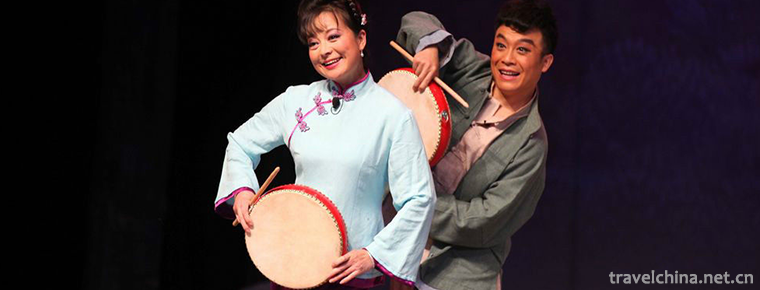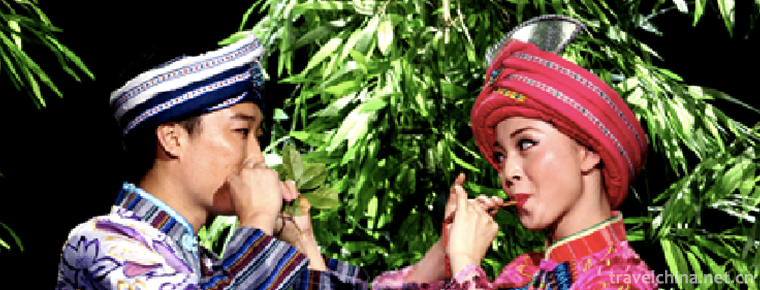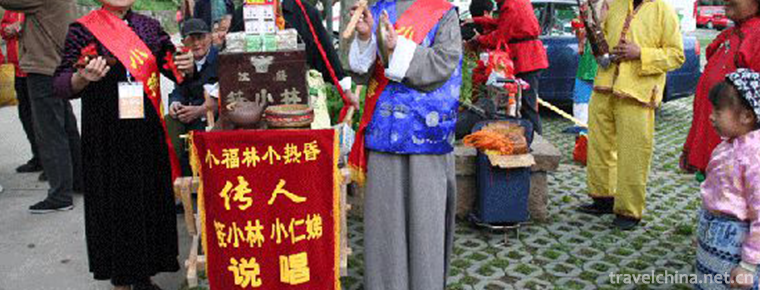The eldest son drum book
The eldest son drum book
The eldest son drum book is the traditional art of rap and singing in Shanxi Province. Changzi County is known as the "Town of Quyi", which has a long history as well as a wide variety of Quyi. The songs include the eldest son drum book, the eldest son Taoist sentiment, the eldest son steel plate book, the eldest son lotus flower fall, the eldest son fan drum, the eldest son drum ci, etc.
On May 23, 2011, the "eldest son drum book" declared by Changzi County of Shanxi Province was listed in the third batch of national intangible cultural heritage list with the approval of the State Council.
historical origin
The eldest son, known as "the land of Quyi", not only has many kinds of Quyi, but also has a long history. Music types include: the eldest son drum book, the eldest son Tao Qing, the eldest son steel plate book, the eldest son lotus flower fall, the eldest son fan drum, the eldest son drum ci, etc. It can be said that nearly one third of Shangdang's local songs originated from the territory of Changzi County.
During the Song and Yuan Dynasties, Changzi County, Shanxi Province, had this traditional folk rap art. First, it was book reviewing, and then there was the Taoist sentiment of the eldest willow tree and the eldest fan drum. In the Qing Dynasty, there were lotus fallen, wooden board, iron board, board book and Henan pendant song in the eldest son's territory. Because of natural disasters, man-made disasters or other reasons, many folk rap artists fled from famine or did business with their eldest son. In addition, some local rap artists survived for their livelihoods and some of them depended on their hobbies. As a result, the troop of all kinds of music gradually expanded and grew up in all corners and surrounding areas of the county, and flourished for a time. However, like other local artists, they are in a low social status, often bullied by evil forces and discriminated against, and the situation is very sad. At that time, despite the "Three Royal Societies" organization, at best it was only a spiritual sustenance, and there was no security in life.
In 1942, the Anti-Japanese Government of Changzi County established the first quyi troupe with blind people in the history of Shizhe Town, Majiayu. It played a special role in publicizing anti-Japanese activities and mobilizing the masses, and their fate changed accordingly. Because of the importance attached by the anti-Japanese government, they first reformed the drum script of the eldest son according to the characteristics of the music. The eldest son drum book was originally a wooden board book. On the basis of it, it absorbed the singing tunes of Shangdang Bangzi, Luozi, Liu Shu Dao Qing and Henan Fallen Zi, and initially formed.
After the founding of the People's Republic in 1949, the eldest son's quyi troop grew stronger, and many "light cavalry" were active in villages and villages both inside and outside the county. Especially in the late 1980s, the eldest son's Quyi team sprang up like bamboo shoots after a spring rain and developed rapidly, sweeping the whole Shangdang land. According to incomplete statistics, there are more than 60 drum Book Singing teams in the county. They have been active in Shangdang and Sanjin for many years. Some of them even broke through Niangziguan and went down Taihang Mountains. They competed with the brothers of Shanxi, Mongolia, Hebei, Shandong and Henan around Shanxi to seize the market.
In the 1950s, famous and old artists such as Hua Puppy, Shiquanzhong and Zhang Yukui all died. Later, Zhou Guixi and Shen Pangyou had a greater influence among the masses. Existing Bao Xianping, Li Xianling, Liu Yinhong, Liu Haiyan, Hu Wanhong, Shen Huwei, Zhang Yuxi, Ji Xianguo, Hu Zepei, Zhao Jinmei, etc., are well-known in Shangdang area.
artistic characteristics
The eldest son drum script is the main local folk song. Popular in the Song and Yuan Dynasties, the Qing Dynasty only talked and did not sing. On this basis, the local Liushu Daoqing, Shandong Tiebanshu, Henan Banershu, and local Ganban Yangko music singing tunes were used for reference. The wooden board script was first created, and then gradually developed into the eldest son drum script. By the 1980s, its singing style was more complete and rich.
The eldest son drum Book team is generally organized by 10 to 12 people, with half of the music and singing. Everyone can play, play and sing. It is known as "Wanjin Oil". Quyi viewing venues are mostly flat terraces and a few are square performances. Now the singers have their own audio equipment, which can perform not only large bibliographies, but also short passages, and impromptu performances. It is suitable for the auspicious entertainment activities such as farmhouse festivals, longevity, full moon, anniversary, garden locks, town temple festivals, city opening celebrations, industrial and mining celebrations, organ festivals and so on. The audience welcomed and embraced it.
Current situation of inheritance
Up to now, there are more than 70 performing teams and more than 1500 practitioners. In 1984, he published a communication article on the front page of Shanxi Daily, which praised the eldest son's Drum Book Performance Team. Since the 1980s, he has participated in provincial and municipal opera performances, performances and won awards many times. For example, "Red Gunner", in 1974 to participate in the former southeastern Shanxi opera performances in the top ranks; "Three Crossing Zhanghe Bay", in 1976 by the provincial television video broadcast; the creation of the repertoire "Zhi Zuo Beigaomiao", in 1990 to participate in the Changzhi National Music Competition Changzhi regional drum, singing part of the tune"won the first prize, and was provincial. Video broadcasting of TV stations; "Rainbow Pomegranate Invites Father". In 2002, he participated in Changzhi City's "Voice of Kaiyuan" Mass Literary and Art Festival and won excellent awards; Police and Civil Conditions, and "Coal Transportation Flowers of Literature and Art" respectively, participated in the system performance above the municipal level and won awards. Among them, "Bitter Fruit" created and sung by Liu Haiyan Quyi Team won the bronze prize in 2004 Shanxi Province "De Yi Shuangxin" Quyi Competition.

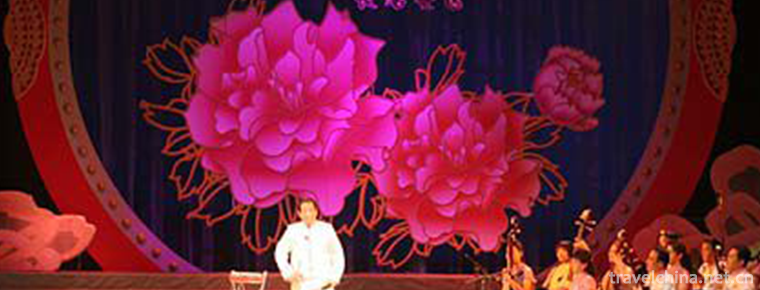
-
Chengdu Maoye JW Marriott Hotel
Chengdu Maoye JW Marriott Hotel is located in Tianfu Square, the heartland of Chengdu. It is about 30 minutes'drive from Chengdu Shuangliu International Airport to the hotel, opening the extraordinary.
Views: 226 Time 2018-12-16 -
Guanyin Gorge Scenic Area
Guanyinxia scenic spot is the entrance of Yulong Pass, one of the six major parks of Lijiang Bazi. It is located at the "Yulong Pass" of the three major parks of Lijiang Bazi and is known as.
Views: 268 Time 2019-01-13 -
Tianhe mountain
Tianhe Mountain, located in Xingtai City, Hebei Province, is China's Love Mountain, the hometown of Chinese Qixi Culture, and the birthplace of the legend of Cowherd and Weaver Girl.
Views: 183 Time 2019-02-21 -
Guangdong folk music
Taishan City, located in the southwest of the Pearl River Delta, is a famous home of overseas Chinese. Taishan's "Eight-tone Class" is one of the activities of Guangdong music.
Views: 218 Time 2019-05-01 -
Lanxi stall spring
Lanxi Spring Spring Spring Spring is an ancient form of sitting and singing art, which was formed and popular in Lanxi area in the Midwest of Zhejiang Province, Jinhua and Quzhou, and belongs to Nanci.
Views: 150 Time 2019-05-10 -
Sangzhi Folk Song
Sangzhi folk song originated from the ballads of the ancestors'daily production and life in the primitive farming period. It is a kind of folk music culture created, Sung and accumulated by the people.
Views: 129 Time 2019-06-12 -
Shangluo Flower Drum
Shangluo Flower Drum, also known as Flower Drum and Ground Bumper, is popular in 7 counties (districts) of Shangluo City, Shaanxi Province, especially in Shangzhou, Danfeng, Zhenan and Zhashui. During.
Views: 181 Time 2019-06-13 -
Tujia Nationalitys Quinone
"Tujia Diaoqu" is not only a wind instrument with peculiar structure, but also a genre of folk songs. At the same time, in Western Hunan, it is also the name of common music cards shared by .
Views: 142 Time 2019-06-23 -
Small febrile coma
Xiao Redun is a kind of traditional Wu rhetoric banter popular in Jiangsu, Zhejiang and Shanghai. It is also known as "Xiaogongshu", commonly known as "selling pear ointment candy".
Views: 107 Time 2019-07-06 -
Tiantai Mountain in Qionglai
Tiantai Mountain Scenic Area in Qionglai is located in the southwest of Qionglai City, the hometown of Wenjun. It is the habitat of Sichuan Giant Panda. It is 110 km away from Chengdu City and 45 km away from Qionglai. .
Views: 193 Time 2020-11-05 -
Soil characteristics of Suining
The strata in Suining City are mainly limestone in the lower part and purplish red sandy soil and mudstone in the upper part. Therefore, Suining area is also known as "red soil land"..
Views: 297 Time 2020-12-16 -
Yibin science and technology
In 2019, there are 34 new high-tech enterprises, 13 provincial science and technology achievements transfer and transformation demonstration enterprises, 2 provincial science popularization bases and 6 Municipal Science Popularization base.
Views: 314 Time 2020-12-18
